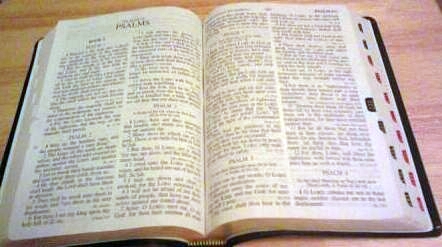 Thou savorest not the things that are of God, but the things that are of man." - Matthew 16:23
Thou savorest not the things that are of God, but the things that are of man." - Matthew 16:23 Thou savorest not the things that are of God, but the things that are of man." - Matthew 16:23
Thou savorest not the things that are of God, but the things that are of man." - Matthew 16:23
All through the New Testament a contrast is established between the spirit of God and the spirit of the world; between "worldly wisdom" and "the wisdom from above." "The wisdom of this world" writes Saint Paul (1 Corinthians 3:19), "is foolishness before God," and Saint James (3:15) calls it "earthly, sensual, devilish." It is in the same sense of condemnation that the world itself is spoken of again and again by Christ himself. Closed against the spirit of truth, it hates Him and all those who belong to Him; it rejoices because He goes away, but its triumph is, in reality, vain, for He has conquered the world.
There is, then, in this world, and in some sense identified with the world, a power that is hostile to Christ, that counteracts His influence and tends to destroy His work. What is that power? It is the unregenerated spirit of man, or man without the Gospel.
All, assuredly, is not evil in the natural man. There still remain in him the natural virtues, a fund of integrity, of humanity, of nobleness. Even un-assisted by divine grace he can perform many actions invested with moral goodness. But these are not his predominant features. In the average man the evil elements prevail. His impulses and actions are incomparably more in the direction of evil than of good. He belongs to Satan more than to God. By the very nature of the case, a world composed of such men is hostile to Christ, and the very purpose of His Gospel is to counteract the spirit which animates it. Hence a struggle which is destined to last to the end of time, inasmuch as the opposing forces are both indestructible. "It is this" says Father Faber, which "makes earth such a place of struggle and of exile. Proud, exclusive, anxious, hurried, fond of comforts, coveting popularity, with an offensive ostentation of prudence, it is this worldliness that hardens the hearts of men, stops their ears, blinds their eyes, vitiates their tastes, and ties their hands so far as the things of God are concerned." The condition of man before the Deluge, as described by Our Lord, was one of worldliness rather than of sin. So was that of the rich man in the parable. The Pharisees were essentially worldlings. There was much respectable observance, much religious profession among them; yet in the judgment of Our Lord, they were further from grace than publicans and sinners. They were, in fact, all through His public life the worst enemies of his person and of His Gospel.
The worldly spirit has its degrees. It may reign supreme in a soul, causing her to consider everything in the light of temporal success and enjoyment, with out any thought of God or of life beyond the grave. But much more commonly it mingles in varying proportions with the better elements of the soul, and even with her supernatural gifts. It allies itself with real faith, genuine zeal, and all the other virtues. This may be seen in the severe rebuke administered by Our Lord to Saint Peter soon after his well-known confession. " Thou savorest not the things that are of God, but the things that are of men." It is after they had received the gift of working miracles that James and John are reprimanded as not knowing to what spirit they belong. This danger besets all Christians, even those whose calling is the holiest and whose intentions are the best. The wisdom of the world is full of seduction. It looks so practical, so well balanced, so full of moderation. It falls in with what is most acceptable in man's natural instincts. In fact, from the very first the difficulty was to escape from the snares of the world, not at its worst, but at its best. Hence the false security which it begets and the ease with which it is followed; whereas to understand the wisdom of the Gospel, and to follow it, demands unceasing watchfulness and constant exertion.
A good priest may become worldly; a tepid priest is almost sure to be so. His tepidity will usually take the form of worldliness. He will observe the external proprieties of his calling, and get a name for practical wisdom, but there will be little prayer in his life, little humility, little self-denial. Even the good priest is ever in danger of allowing the spirit of the world to supplant the spirit of the Gospel in his soul. It is hard to live in a place and not imbibe its spirit. It is in the air one breathes, in the numberless objects that strike the senses. It is con veyed in every conversation. How, then, is the priest to escape it?
By watchfulness and prayer, by being ever on his guard, ever purifying his motives, ever praying for help from above.
- from Daily Thoughts for Priests, by Father John Baptist Hogan, S.S., D,D., 1899; it has the Imprimatur of Archbishop John Joseph Williams, Archdiocese of Boston, Massachusetts